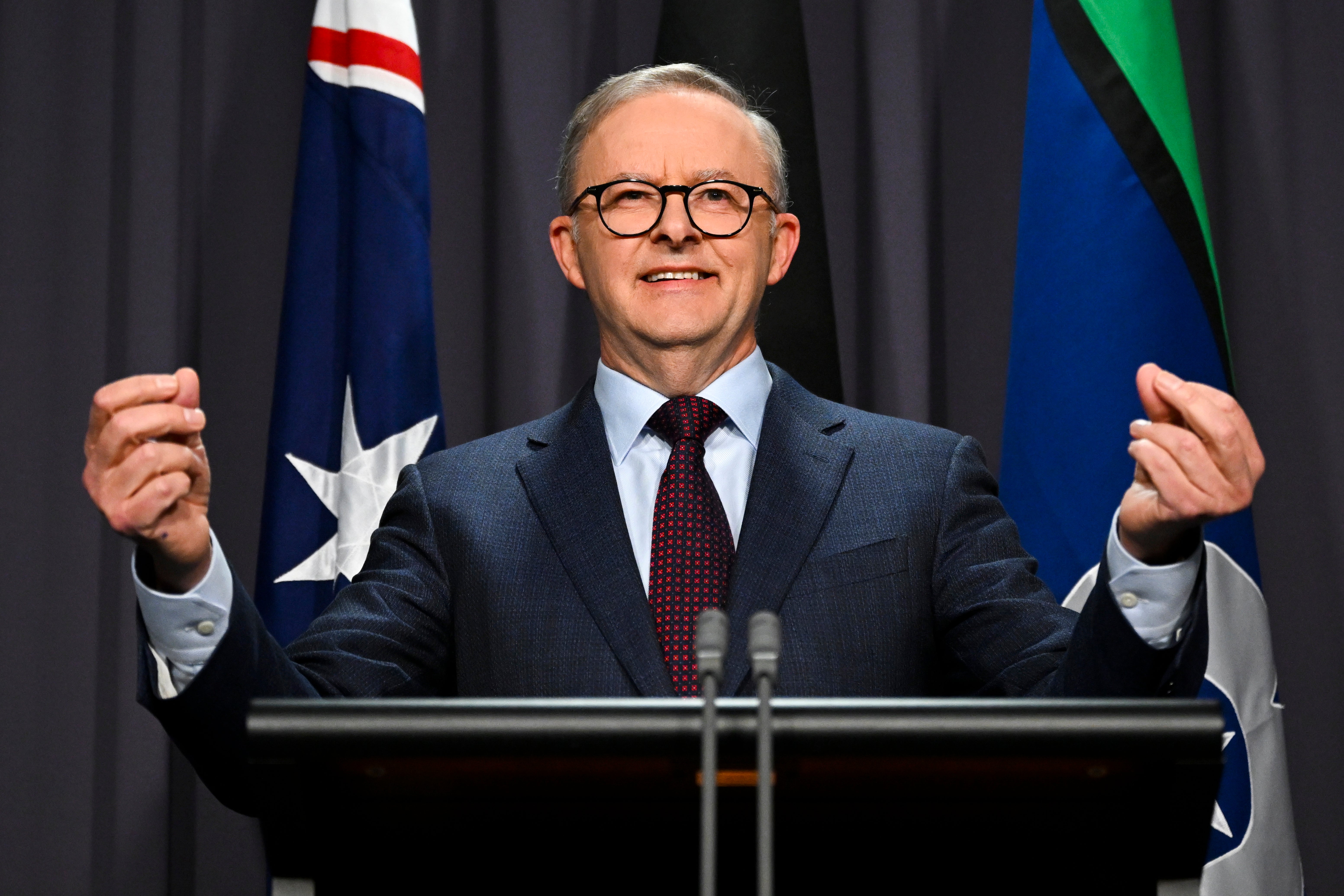Australia to prevent prime ministers gaining secret powers
Australian Prime Minister Anthony Albanese says his government will launch an inquiry aimed at preventing a prime minister from ever again secretly amassing new ministerial powers

The Australian government will launch an inquiry aimed at preventing a prime minister from ever again secretly amassing new ministerial powers, Prime Minister Anthony Albanese said Tuesday.
Albanese’s predecessor Scott Morrison secretly appointed himself to five ministerial roles between March 2020 and May 2021, usually without the knowledge of the original minister.
After the revelations, Solicitor-General Stephen Donaghue issued legal advice that Morrison had been “validly appointed” in the duplicated portfolios.
But to be appointed without notifying ministers, the parliament or the public was not “consistent with the principle of responsible government,” Donaghue said in his 29-page legal opinion, which Albanese released publicly Tuesday.
Morrison’s extraordinary power grab is seen as part of a wider trend in Australian politics to concentrate power within a leader’s office at the expense of the British Westminster tradition of delegating responsibilities among ministers.
Albanese, who replaced Morrison at May elections, said his Cabinet had been briefed on Donaghue's advice on Tuesday and agreed to set up an inquiry into how to avoid a repeat of Morrison's behavior.
Albanese’s office would immediately discuss with the staff of Governor-General David Hurley, who represents Queen Elizabeth II, Australia’s head of state, a plan to publish all future ministerial appointments.
Such publishing could be enshrined in law to ensure it was “not dependent upon the goodwill of the government of the day,” Albanese said.
“What we’re dealing with here wasn’t envisaged. I don’t think anyone in this room, certainly no one in the current government, sat around and said: ‘I wonder if Scott Morrison has been put in charge of the Department of Industry Science, the Department of Home Affairs or whether he’s made himself Treasurer?’” Albanese told reporters at a news conference.
Morrison, who is now an opposition lawmaker, told reporters last week that he usually kept his extra powers secret because they could be misconstrued. The portfolios were health, finance, treasury, resources and home affairs.
Morrison said his power grab had been an emergency measure made necessary by the coronavirus crisis, but his only known use of the secret powers had nothing to do with the pandemic. He overturned a decision by former minister Keith Pitt to approve a contentious gas exploration project north of Sydney that would have harmed his coalition’s reelection chances.
Those who want an Australian president to replace the British monarch as Australia’s head of state in a republic have been critical of the governor-general’s role in the secrecy.
While Hurley was obliged to follow Morrison’s advice in rubber-stamping the prime minister’s growing list of portfolios, critics argue a governor-general should have insisted on public disclosure.
Hurley’s office said in a statement: “The governor-general had no reason to believe that appointments would not be communicated.”
Bookmark popover
Removed from bookmarks